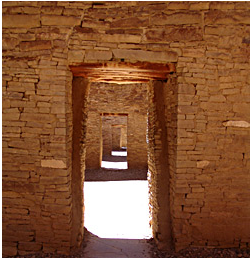Publication Date
12-1-2013
Abstract
This dissertation investigates the long-term impacts of tribal economic development programs on the cultural preservation efforts of the Mississippi Band of Choctaw Indians (MBCI). Since the 1970s the Mississippi Choctaw have initiated many different economic enterprises ranging from manufacturing plants to resort development, owning and operating a diversified portfolio of manufacturing, service, retail, and tourism enterprises. This history of engaging with western business models offers a unique perspective for analyzing the long-term effects of these practices on a tribal community. My work with the MBCI engages a long debate over the use of capitalist business models in tribal economic development strategies. My research examines the Mississippi Choctaw Nations negotiations with capitalist economic development and western cultural forms as a dialectical interaction. By studying the MBCI's contemporary tribal economic development programs I hope to shift the conversation towards seeing them within an Indigenous paradigm of adaptation, negotiation, and change. In this research I am exploring whether or not the conscious utilization of capitalist economic development programs by the MBCI has reinforced and strengthened their cultural sovereignty.'
Keywords
Choctaw, Tribal Economic Development, Native North America, Cultural Preservation
Project Sponsors
An Andrew W. Mellon Doctoral Fellowship, the Public Policy Fellowship from the Alfonso Ortiz Center for Intercultural Studies at UNM, the Department of Anthropology, the Native American Studies Department, the Office of Graduate Studies, the Graduate and Professional Student Association, Career Services, the Alfonso Ortiz Center for Intercultural Studies, and the Institute for American Indian Research
Document Type
Dissertation
Language
English
Degree Name
Anthropology
Level of Degree
Doctoral
Department Name
Anthropology
First Committee Member (Chair)
Beverly R. Singer
Second Committee Member
Les W. Field
Third Committee Member
Lloyd Lee
Fourth Committee Member
Joe E. Watkins
Recommended Citation
Gantt, Sean Everette. "Nanta Hosh Chahta Immi? (What Are Choctaw Lifeways?): Cultural Preservation in the Casino Era." (2013). https://digitalrepository.unm.edu/anth_etds/25

